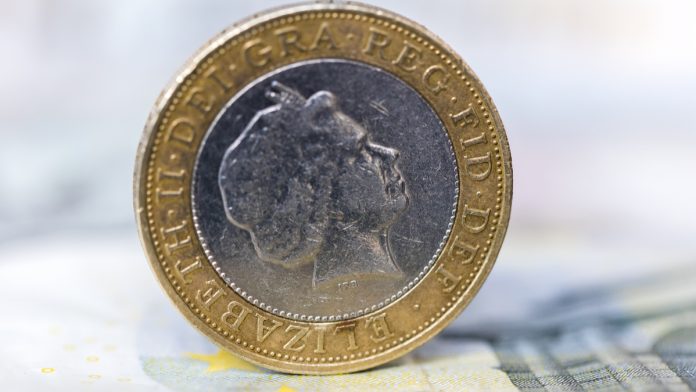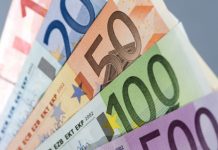- Pound (GBP) is rising for a third day
- UK business activity grew at a faster pace in July
- Euro (EUR) falls after business activity stalls
- EZ manufacturing activity contracts further
The Pound Euro (GBP/EUR) exchange rate is rising for a third straight day. The pair rose 0.13% in the previous session, settling on Tuesday at €1.1891 and trading in a range between €1.1866 and €1.1908. At 18:00 UTC, GBP/EUR trades 0.19% at €1.1912.
The pound is rising after UK business activity data was stronger than expected, showing that the UK economy has started the third quarter in a solid fashion after a pre-election lull.
The composite PMI, which is considered a good gauge for business activity, unexpectedly rose to 52.7 in July from 52.3 in June, a six-month low. Diving deeper into the figures, the data shows that both the manufacturing sector and the services sector experienced an acceleration in growth, with manufacturing activity expanding at its strongest pace in two years.
Meanwhile, in an encouraging sign for the Bank of England, businesses raised prices at the slowest pace since February 2021, signaling that inflationary pressures continue to ease.
The data comes ahead of the Bank of England interest rate decision next week, where the market is pricing in a 45% probability that the central bank will cut right by 25 basis points to 5%.
The decision appears to be a coin toss as UK inflation has cooled to 2%, the target level, but service sector inflation remains sticky at 5.7%.
Meanwhile, the euro traded lower after the PMI data came in weaker across the board, pointing to the eurozone economy losing momentum at the start of the third quarter.
Manufacturing contracted faster, and services expanded slower, with the PMIs at 45.6 and 51.9, respectively. As a result, the composite PMI, which measures business activity as a whole, came in at 50.1, just above the 50 threshold that separates expansion from contraction.
Germany’s manufacturing sector remains a major concern. The PMI fell to 42.6, down from 43.5, and the German composite PMI was back in contraction.
The data raises concerns over the health of the economy heading into the second half of the year and leaves the door open for a September rate cut from the ECB after the central bank reduced rates by 25 basis points in June.





